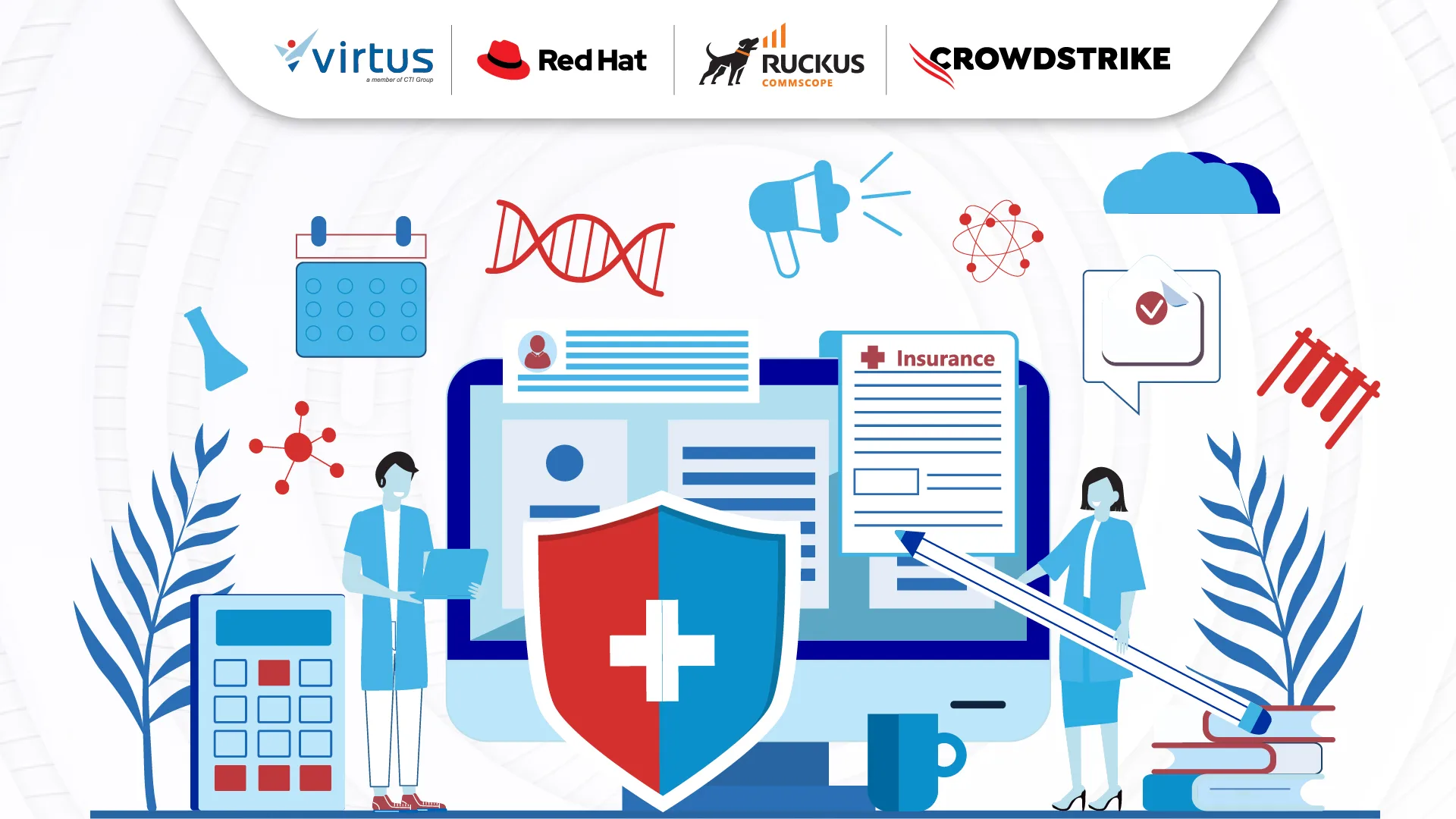In today’s digital era, hospitals across Indonesia are rapidly transforming — adopting Electronic Medical Records (EMR), telemedicine, and IoT-based medical devices. These innovations bring greater efficiency, faster services, and an improved patient experience.
But behind this progress lies a growing challenge: protecting patient data. Healthcare information has become one of the most valuable assets on the dark web. When hospital systems fall victim to ransomware attacks, the consequences can be devastating — operations freeze, critical data becomes inaccessible, and public trust quickly fades.
That’s why Healthcare Cybersecurity is now a crucial foundation for every step of digital transformation in hospitals. Without a robust cybersecurity strategy, digitalization efforts could instead open the door to ransomware, data breaches, and other cyber threats that disrupt essential healthcare services.
Why Cybersecurity Matters in the Healthcare Sector
In today’s digital era, hospitals store vast amounts of patient data such as medical records and treatment histories. This information is highly sensitive and strictly regulated under laws like Indonesia’s Personal Data Protection Law (UU PDP). Unfortunately, many healthcare systems still need modernization and lacks strong cybersecurity measures.
According to Setiaji, Expert Staff to the Minister of Health for Health Technology, health data can be worth up to ten times more than credit card data on the black market. This makes the healthcare sector a prime target for cybercriminals. During the Health-CSIRT 2025 forum, the government emphasized the importance of digital security to protect both patient information and healthcare services.
With the growing use of telemedicine and internet-connected medical devices, the risks are increasing. Weak security can open the door to cyberattacks at any time. That’s why cybersecurity is no longer optional — it’s a core foundation of a safe and trusted digital hospital.
How to Build a Strong Foundation for Healthcare Cybersecurity?
To build a resilient digital healthcare ecosystem, three main pillars are required:
- People: Strengthening security awareness among medical and administrative staff.
- Process: Strong SOPs, real-time monitoring, and fast incident response.
- Technology: Modern platforms and integrated solutions from Red Hat, Ruckus, and CrowdStrike.
Red Hat – A Modern and Secure Digital Foundation
Red Hat provides a secure and flexible hybrid platform to support critical applications such as EMR, billing systems, and telemedicine. With OpenShift Virtualization, hospitals can manage VMs and containers within a single, unified environment.
Advantages:
- More efficient and faster application management.
- Enterprise-grade performance with secure open-source innovation.
- Modernization without compromising stability and regulatory compliance.
Impact: Hospitals can continuously innovate, expand digital services, and maintain operational continuity while ensuring security.
Ruckus – Reliable Connectivity for the Healthcare Sector
Ruckus ensures seamless connectivity for medical teams and hospital IoT devices. With Ruckus AI, BeamFlex, ChannelFly, and the SmartZone Portfolio, hospital Wi-Fi networks become smarter and more adaptive.
Advantages:
- Automated troubleshooting and traffic density control.
- Adaptive coverage in high-density areas such as ICUs or laboratories.
- Real-time access to patient data for faster and more accurate medical decisions.
Impact: Creates a high-performance digital backbone that maintains stable connectivity across all hospital areas.
CrowdStrike – Protecting Patient Data from Cyber Threats
CrowdStrike provides cloud-native endpoint and workload protection to prevent ransomware and other sophisticated attacks. With Falcon XDR, Threat Intelligence, and the Security Maturity Model, hospitals gain full visibility across endpoints and the ability to detect and respond quickly.
Advantages:
- Real-time threat detection and ransomware prevention.
- High scalability and compliance with the Personal Data Protection Law (UU PDP).
- Patient data protection without disrupting hospital operations.
Impact: Data remains secure, and services continue running — even during active cyber threats.
It’s Time to Build an Effective Healthcare Cybersecurity with Virtus
As an official enterprise solutions partner in Indonesia, Virtus Technology Indonesia (part of the CTI Group) has deep expertise in building cybersecurity in healthcare solutions.
We understand the complexity of modern healthcare systems — from EMR integration and hospital networking to patient data protection in the cloud.
Virtus offers an end-to-end approach:
- Consulting and security architecture planning
- Implementation of integrated solutions from Red Hat, Ruckus, and CrowdStrike
- Comprehensive training and ongoing support for hospital IT teams
With a strong understanding of local regulations such as the Personal Data Protection Law (UU PDP) and extensive experience supporting digital transformation in healthcare institutions, Contact Virtus Technology Indonesia today to discover how we can help you build a resilient, efficient, and trusted healthcare cybersecurity framework.
Writer: Ary Adianto
Content Writer, CTI Group

